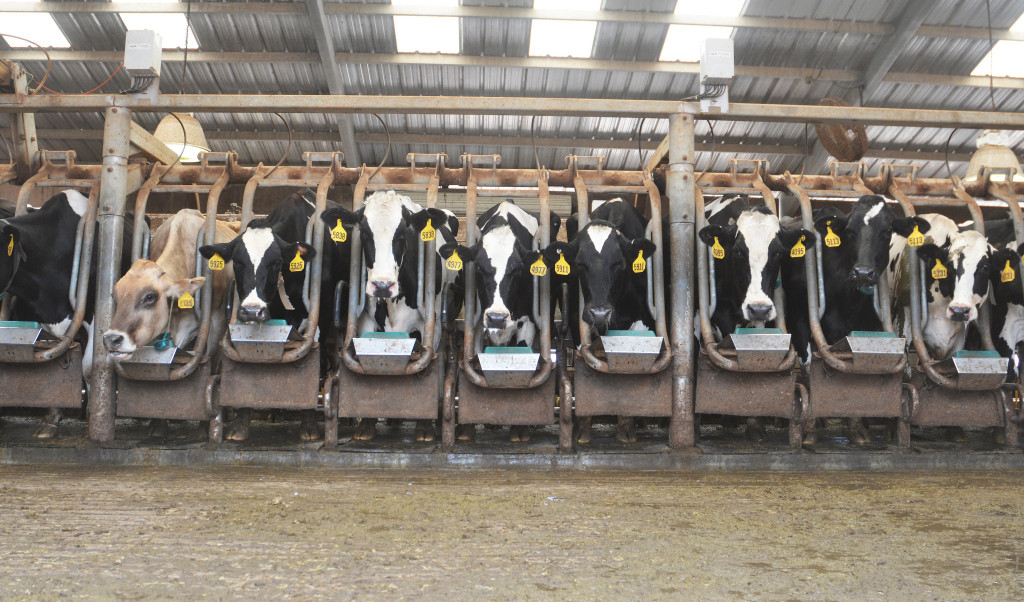As 2015 draws to a close, I thought it would be interesting to take a look back at the top agricultural law developments this year. First, we will take a couple of posts to look at the national year in review, followed up by a look at the biggest Texas-specific happenings next week.
From “Waters of the United States” to drones to GMOs to the United States Supreme Court, 2015 has been a busy year for agricultural law. Here are the highlights.
“Waters of the United States” regulation finalized, then stayed. Probably the most watched agricultural law issue of 2015 was the Environmental Protection Agency’s and US Corps of Engineers’ new regulation defining “waters of the United States” pursuant to the Clean Water Act. The agencies solicited public comment in 2014 and issued their final rule in May. Numerous lawsuits followed challenging the scope of the rule and the procedure used in adopting the rule. Currently, these suits are pending in nine federal courts across the country. In October, the United States Court of Appeals for the Sixth Circuit issued a nationwide stay on the rule until the lawsuits can be considered. Shortly thereafter, the EPA’s motion to consolidate all of the pending cases into one action before the United States District Court for the District of Columbia, was denied. Although Congress considered bills seeking to overturn the new rule, in November the Senate’s version of the bill failed to pass. Thus, for now, the new rule is not in force and litigation continues. [Read prior posts here and here and here.]
Idaho “ag gag” statute declared unconstitutional. An Idaho federal judge issued the first legal ruling on the constitutionality of a law prohibiting secret filming of farm operations (commonly referred to as “ag gag laws”). The purpose of such laws, argue proponents, is to protect the safety and privacy of farm families, employees, and animals from animal activist groups infiltrating operations. Opponents, on the other hand, claim that the laws encourage animal abuse and infringe upon free speech rights. The court agreed with the challengers, finding that the Idaho law violated both the First Amendment and Equal Protection Clause. It is unclear at this time whether Idaho will appeal the court’s decision. Several other states, including North Dakota, Montana, Kansas, Utah, Iowa, and Missouri have similar laws. The impact of the Idaho court’s decision on laws in other jurisdiction remains to be seen, but is concerning to proponents of such laws. [Read prior posts here and here.]
Lesser Prairie Chicken listing under Endangered Species Act vacated. In September, a federal judge in the Western District of Texas found that the US Fish and Wildlife Service failed to follow their own rules when listing the lesser prairie chicken as “threatened” under the Endangered Species Act. Specifically, the USFWS failed to adequately take into consideration voluntary conservation plans entered into by landowners prior to the listing decision. Although the US FWS has not yet filed an appeal with the United States Court of Appeals for the Fifth Circuit, it is expected that one will be forthcoming. For now, however, the federal protections for the bird have been removed. [Read prior posts here and here and here.]
RCRA “solid waste” provision applied to manure. Earlier this year, a Washington federal court found, for the first time, that manure met the definition of “solid waste” under the federal Resource Conservation and Recovery Act. The case involved the alleged improper storage and application of manure by dairies in Washington state. The result of the application of RCRA to manure is that federal requirements under the Act would apply. Shortly after this decision, the parties settled the case, entering into a consent decree under which the dairies would undertake several steps to prevent manure contamination of groundwater. Whether this same decision will be made by other courts across the country is unclear. At least one dairy in California has reportedly been served with an intent to sue under RCRA. Producers should certainly be concerned that lawsuits under RCRA are a possibility and ensure proper handling, storage, and application of manure. [Read prior post here.]
Corn producers and agribusinesses file suits against Syngenta. After shipments of US corn were rejected by China due to the presence of a genetically modified Syngenta variety, MIR-162, several agribusinesses and corn producers across the country brought suit against Syngenta. The lawsuits, the vast majority of which have been consolidated in multi-district litigation, generally allege that Syngenta’s selling of the seed in the US without Chinese approval caused a decline in the corn market due to the rejections. Syngenta, on the other hand, argues that the seed was approved for use in the United States, China was not a major purchaser of US corn, and there is no evidence of causation between the MIR-162 seed and the decline in corn prices. Recently, Syngenta filed another suit against grain traders like Cargill and ADM, claiming that if there is any liability to corn farmers, the traders should bear the burden of a judgment. The lawsuits remain pending. [Read prior post here.]
*Stay tuned tomorrow for Part II of this review.*













